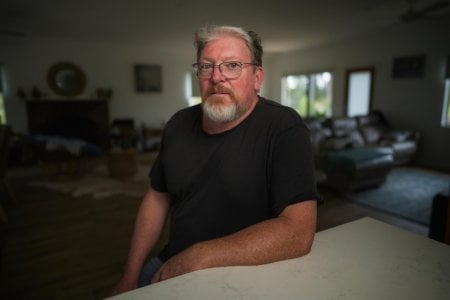PSA: An elaborate scam is targeting Aussies' superannuation
In our Scam Watch board, you’ve learned useful tips to spot fraud attempts. By now, you already know not to share sensitive personal details over the phone, or click links and provide your bank information, among others. If a deal is probably too good to be true, then it probably is. If something is off, you should always trust your gut. You know the drill.
However, things aren’t always that simple. You can be diligent in double-checking information online and seeking experts and still fall for a scam.
In a recent feature, ABC showed a call centre in the Philippines being raided for its alleged ties to a sophisticated scam operation. The scheme has swindled millions of dollars from Australians’ super funds.
Leading the raid was the Philippine National Police Anti-Cybercrime Group. They were accompanied by Ken Gamble, an Australian private investigator representing victims from back home.
The call centre employees were caught in the middle of the workday while they gathered information about unsuspecting victims. Reading a script, they pretended to be from Australia while asking citizens details about their lifestyles and spending habits.
According to Gamble, the call centre is suspected to be just the starting point. From there, the information is sent to a group of Westerners who will contact their targets and introduce themselves as financial planners.
‘They have intricate knowledge of how self-managed super funds are set up and they've had a lot of experience in scamming people in this particular area,’ Mr Gamble said, ‘They become very, very good at it, and they're able to put all the bells and whistles onto the scam to make it look legitimate.’
When talking to victims, they introduced themselves as employed by the ASAL Group, a legitimate entity under the financial services company AMP. They even encouraged victims to check out their website, stating that they had provided financial services in the country since 1985. It has since been taken down.
The fraudsters would then offer a self-managed super fund to invest in high-performing funds, as well as a product called the Morgan Stanley Inception Fund.
The fraudsters did not create a sense of urgency, unlike other scammers. Mr Rob Wade, a victim, said: ‘It looked fairly interesting. He sort of let me sort of sit on it for a couple of days, so there was never any pressure about it.’
Mr Wade verified the information online, such as their business number and licence. Another victim named Mr Louie Rinaldi, an IT professional, also ran his own detailed checks.
‘When I actually got the bank account details, which we had to transfer the money into, I thought it was an Australian bank, ANZ. It can't be a scam,’ Mr Wade told ABC. The ASAL Group even had an app where victims like Mr Wade could check what was happening to their money.
Eventually, Mr Wade and Mr Rinaldi were informed that they had been scammed. The latter had been informed that all of his money was sent overseas within 24 hours.
Upon identifying the fake company and website last year, AMP issued a security alert. Morgan Stanley also clarified with ABC that while they offer a fund legally named Morgan Stanley Institutional Fund, Inc. Inception Portfolio, it is not authorised for Australian investors.
On a Reddit thread where the article was shared, one poster said: ‘It's really not difficult to see the signs. If someone with an Asian or African accent calls you and you're not sure they are legit, hang up, find the real number on their website and call them back.’
Other Redditors expressed their disagreement, however, through a ‘downvote’. One comment said: ‘Awful take. There are people who work at the ATO with accents, you know.’
Another Aussie replied: ‘This is really bad advice with racist undertones. I've had scam callers with Australian accents pretending to be from the ATO. I've also had legitimate companies call me and the person on the other line has a different accent. People with European accents can also be scammers as well...’
And it definitely wasn’t that easy. Many victims did not even doubt that they were talking to another Australian. Commenting on the scammer he spoke with, Mr Wade said: ‘[He] sounded Aussie to me.’
Another Redditor commented: ‘There needs to be a full stop of anyone without a legitimate Australian Address business or residential address having access to an Australian phone number.’
This, however, is also difficult to enforce. As another Reddit user said: ‘There isn't really a way to stop that due to the dated telecommunication network. Spoofing numbers can be done easily and there is no way to verify it.’ The Australian Communications and Media Authority provides more information on ID spoofing and how to protect yourself.
The investigations are still ongoing, with one British national in Manila apprehended after being suspected of running the call centre. He could be imprisoned for six to 12 years if found guilty of cyber fraud-related offences.
Meanwhile, a spokesperson for AMP said that they were able to recover the funds of some of the victims. ‘In instances where people are concerned they may have been scammed, it is critical to contact their financial institution as quickly as possible to increase the chances of funds being recovered’, they cautioned, ‘These matters are a powerful reminder that Australians need to treat contact by any third parties in relation to their investment and superannuation with the maximum caution.’
The very upset Mr Rinaldi told ABC: ‘Some people could say it was my fault. I openly sent that money. But I was obviously scammed by some very, very, very clever people with a lot of resources behind them.’
You can watch the ABC report below:
Be careful out there!






